26 Jul2019
By Katrina Norfleet
The Teacher Educator national peer-reviewed journal recently shared the top 10 most downloaded articles in the first three months of 2019. The most downloaded article in 2018 was “Current Issues in Teacher Education: An Interview with Dr. Linda Darling-Hammond” with 2,726 downloads. Other popular articles cover a range of topics including multicultural teacher education, perceptions of ELL students, student stress and coping, and teaching reflective practice. The full list of the top 10 articles are included in the table below.
AACTE President and CEO Lynn M. Gangone serves on Editorial Advisory Board of The Teacher Educator, a forum for promoting discussion among educators who seek to challenge existing boundaries in the field. The journal invites AACTE members to submit notable work on current
24 Jul2019
By Tommy Navickas
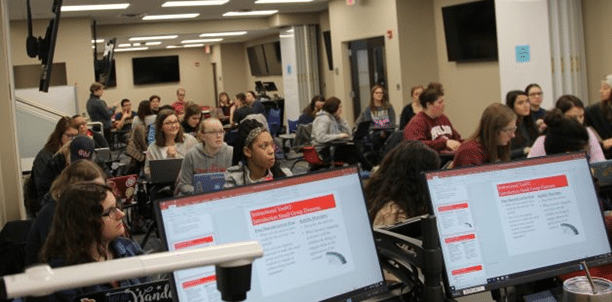
This article and photo originally appeared in Illinois State University News and are reprinted with permission.
For several years, the College of Education has prioritized the redesign of classrooms and computer labs to reflect the flexible learning needs of aspiring educators and their future students.
The first reimagined collaborative space was Studio Teach. The third-floor, approximately 2,000-square-foot area overlooks the University’s Quad. It features dozens of flexible seating options, stations where multiple students can connect to a single monitor, SMART Boards, a 3D printer, an educational gaming area, a writeable white board partition, multiple wall-mounted monitors, and an array of technology available for checkout.
Storage areas on DeGarmo’s garden level have also been converted to classroom spaces with several interactive monitors that can be controlled individually or together through a single source. In addition, several classroom spaces in DeGarmo have been remodeled with a few more to come this fall. They too incorporate flexible seating and cutting-edge educational technologies.
The Richard L. Benson Flexible Learning Space was created with the help of funding by the alumnus for which it was named.
It’s a shift in mindset reflective of the evolving state of PreK–12 learning environments across
19 Jul2019
By Katrina Norfleet
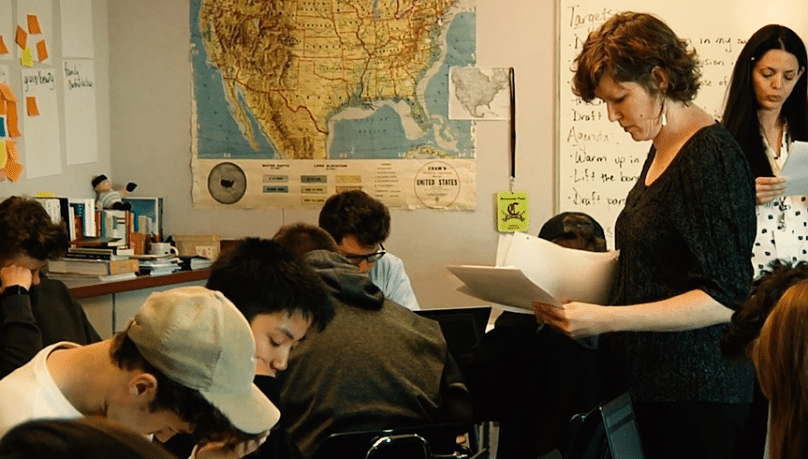
One of the key components of Portland State University’s (PSU) Secondary Dual Education Program is its success in developing and sustaining partnerships with local school districts.
Marvin Lynn, dean of the Graduate School of Education at PSU, shares how the program prepares secondary education teacher candidates to bring content knowledge and “the knowledge that special education teachers have to bare about the learning process and about how to work with these unique populations” to local schools.
Educators like Ana Capac, a special education teacher at Evergreen High School, specifically ask for student teachers from the PSU program because of the mindsets and approaches they bring to the classroom and community. “It is really important that I’m supporting both the student teachers I’m working with on how they are developing this mindset of inclusion, supporting all students, and working within the school to support their colleagues as well,” says Capac.
Andrew Gilford, assistant principal at Clackamas High School, emphasizes this culture shift to more collegial relationships where the PSU teacher candidates and the classroom teachers “speak the same language” and can work together to serve students with disabilities and improve learning outcomes. “Coming from this kind of program and this kind of background, you are immediately an advocate,” adds Rob Parness, special education teacher and former academic coach at Tigard High School.
In discussing the culture shift, Will Parnell, curriculum and instruction department chair at PSU, emphasizes that the program was built based on relationships with the community. “There were local districts that were saying ‘we want special ed teachers that can support students in general ed classrooms’ but they found out that teacher prep programs were not focused on that,” says Susan Bert, assistant professor of practice, special education at PSU. “So there was a need.”
To learn more, view the Developing and Sustaining Partnerships video featuring PSU’s Secondary Dual Education program.
09 Jul2019
By Brandon R.T. Frost
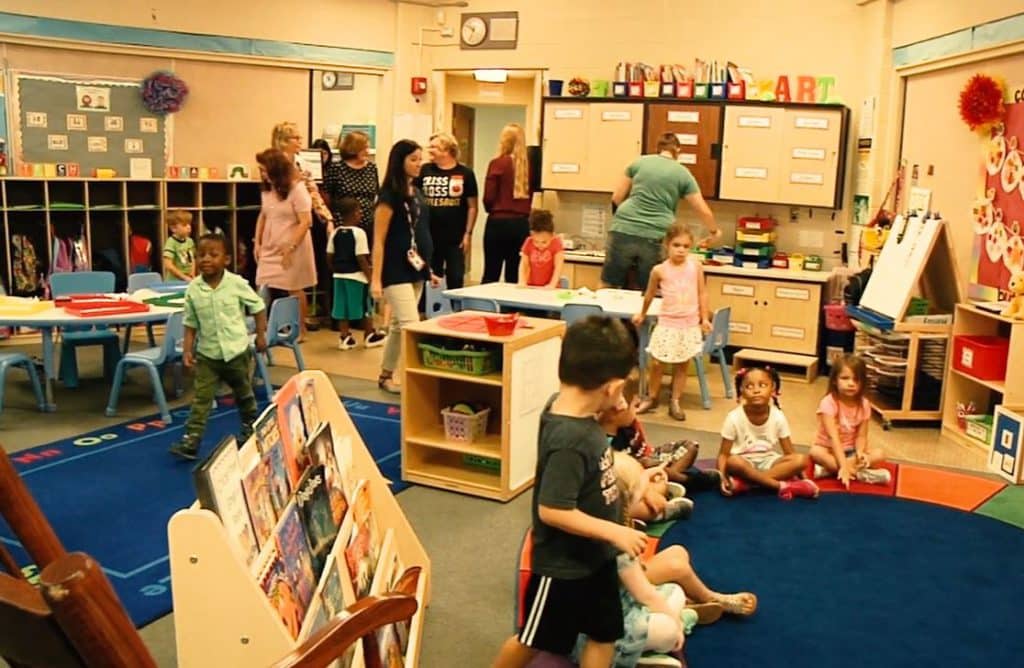
The Dual Licensure component of the Inclusive Early Childhood Program at Bowling Green State University (BGSU) supports teachers by improving their teaching craft and ensuring that teachers’ instructions remain relevant to their students.
Brenda Gift, the director of student services at Educational Services Center of Lake Erie West, applauds the program for providing high quality teachers who are eager to work in integrated classrooms. She further asserts that school districts are more likely to hire BGSU teacher candidates because of their dual licensure. Not only does the dual licensure indicate that teacher candidates can support all students, but it makes them marketable and competitive for hiring.
Some of the mentor teachers in partner school districts who support BGSU teacher candidates are BGSU alumni. Despite the responsibilities of being a classroom teacher, they value mentoring BGSU teacher candidates because they know how important it is to have an effective and supportive host teacher. The early childhood students benefit from teacher candidates because it provides a smaller teacher-to-student ratio. Teacher candidates agree that having proper training for inclusive education benefits them and the students they teach, assuring they are ready to instruct all learners once they enter the classroom.
To learn more, watch the What’s In It for Me? video highlighting BGSU’s Models of Inclusive Clinical Teacher Preparation, part of AACTE’s Research-to-Practice Spotlight Series.
09 Jul2019
By Michelle Buehl and Jane Vogler
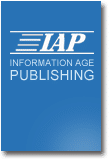 As co-editors, we are seeking chapter authors for a book we are publishing with IAP: Information Age Publishing titled Teaching Learning for Effective Instruction. The volume is part of the series, Theory to Practice: Educational Psychology for Teachers and Teaching, and it is scheduled to be released in early spring 2021.
As co-editors, we are seeking chapter authors for a book we are publishing with IAP: Information Age Publishing titled Teaching Learning for Effective Instruction. The volume is part of the series, Theory to Practice: Educational Psychology for Teachers and Teaching, and it is scheduled to be released in early spring 2021.
Education researchers and practitioners are invited to submit chapter proposals between 500-750 words by September 15, 2019. Chapters in this volume may include
- a review of the empirical research that supports the teaching of learning and cognition as it applies to P-12 settings;
- a description of instructional practices used in college courses that have been effective in teaching about and modeling principles of learning and cognition; or
- a systematic discussion of issues surrounding the teaching of learning and cognition theories, research, and classroom applications, with clear connections between the empirical literature and the instructional practices.
01 Jul2019
By Katrina Norfleet
AACTE board member Donald Easton-Brooks is widely known as a scholar of educational policy and culturally responsive teaching. This year, he released his book Ethnic Matching: Academic Success of Students of Color. In a recent Q&A with AACTE President and CEO Lynn M. Gangone, Easton-Brooks talked about the book and how his research shows diversifying the teaching profession will ultimately improve student’s success. The following summary highlights the conversation.
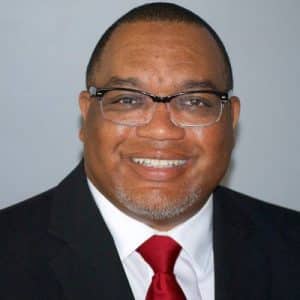 How would you describe the concept of ethnic matching and its importance to student learning?
How would you describe the concept of ethnic matching and its importance to student learning?
What ethnic matching initially suggests is that teachers of color can play a significant role in enhancing the academic experience of students of color. As this research and other research progress, findings have shown that teachers of color can play a significant role in also enhancing the academic experience of white students and can assist in enhancing a more culturally responsive profession as a whole. Therefore, the concept and research related to the concept suggest that we need to diversify teacher education. Mainly because as our communities are becoming more diverse, we are seeing our public schools also becoming more diverse. Yet what is happening is that our educator profession is not growing at a similar rate as these communities of students. The research around the concepts shows that perceived knowledge or knowledge from a preceptive culturally lens can play a role in students’ understanding of concepts, learning, and processing of information. This often can lead to these students being misinterpreted by teachers and feeling somehow misunderstood by teachers if they do not have that cultural lens to understand them. That is what teachers of color can bring to the table that can be of assistance to educational systems.
01 Jul2019
By Joanna Masingila
The journal of the New York Association of Colleges for Teacher Education, 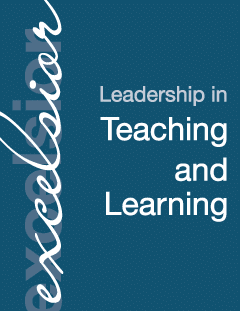 , has successfully navigated from a print journal with a subscription price to an online, open access journal that is free. Our new co-editors, Christine Ashby and Julia White have just published their first issue. The journal welcomes submissions from all interested teacher and leader educators.
, has successfully navigated from a print journal with a subscription price to an online, open access journal that is free. Our new co-editors, Christine Ashby and Julia White have just published their first issue. The journal welcomes submissions from all interested teacher and leader educators.
Excelsior is the key outlet for publishing work in teacher preparation for the New York Association of Colleges for Teacher Education. For over a decade, it has reported research across content disciplines, research methodologies, theoretical perspectives, and current issues in the field.
In addition to presenting authors the opportunity to publish in an open access journal, we want to increase the diversity of manuscript topics, including the diversity of research methods, and extend the range of researchers and practitioners publishing in Excelsior. To meet this goal we will routinely solicit submissions from:
28 Jun2019
By Brandon R.T. Frost
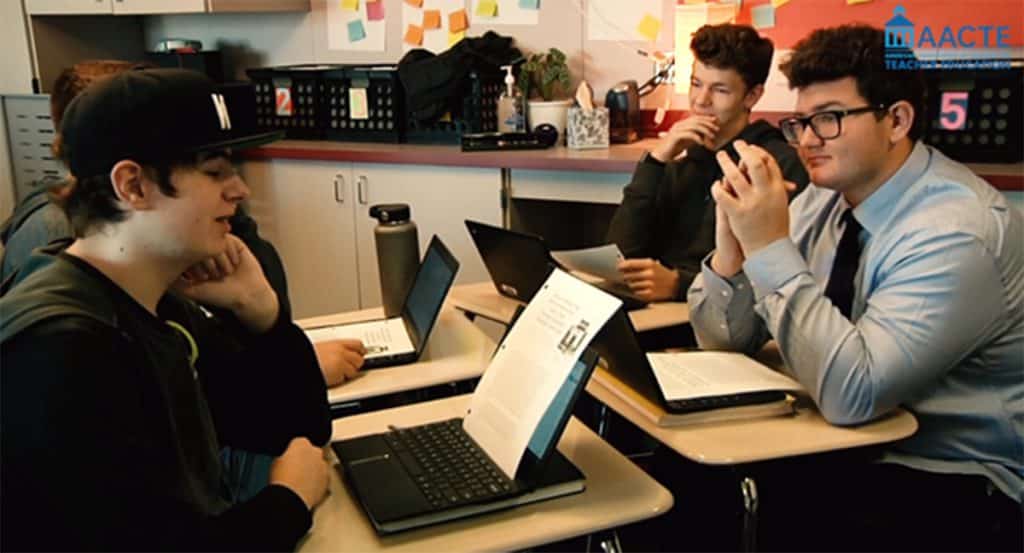
Empowering teachers to feel adequately prepared on their first day of teaching is the goal of Portland State University’s (PSU) Secondary Dual Education Program (SPED). As classrooms becomes more diverse, teachers need skills to address all students’ needs and make every student feel they are included in a positive community.
Andrew Gilford, assistant principal at Clackamas High School, believes the training and preparation his teachers receive from SPED enables them to meet the needs of all their students in the classroom. The program requires all teacher candidates to have two years of practice before entering the classroom. In particular, during the two years candidates engage in a combination of observation and student teaching. Michael Bowersox agrees that the two-year program allowed him to combine his coursework at PSU with classroom practice so that he is ready to be an effective teacher on the very first day as a teacher of record. Teacher candidates are matched with master teachers, learn to plan together, and develop the teaching skills to positively affect student achievement for all.
The highlight of PSU’s Dual Degree program is the training it provides its teacher candidates to be inclusive educators. “A characteristic of a successful classroom is the ability for everyone to feel included and have the opportunity to be included,” says Joseph Cornett, a graduate of PSU and a social studies teacher at David Douglas High School. He explains that the program taught him how to set up his students for success, work collaboratively with teachers, and navigate the school system and curriculum.
To learn more, view the video highlighting PSU’s Secondary Dual Education program, part of AACTE’s Research-to-Practice Spotlight Series.
27 Jun2019
By Lynn M. Gangone

This article by President and CEO Lynn M. Gangone was originally published in the “Empowering Our Educators” supplement to USA Today and on the Education and Career News website. The article and photo are reprinted with permission.
Effective educators are developed, not born. Their preparation begins in colleges and schools of education and persists through the professional development during their careers. As the needs of student learners evolve, so too must our development of educators.
25 Jun2019
By The Virgin Islands Consortium
This article and photo originally appeared in The Virgin Islands Consortium and is reprinted with permission.
The University of the Virgin Islands on Monday launched an Inclusive Childcare Laboratory and Diagnostic Center on the St. Thomas Campus. According a release the institution of higher learning issued, the new facility is intended to enhance the educational experience of preservice teachers who will be supervised by professors as part of their studies—while supporting the university’s students and employees to better manage the challenges of balancing parenthood and college life. UVI will be among the first Historically Black Colleges and Universities to provide this service.
The establishment of a research-based childcare program linked to early childhood and the School of Education has been a goal of UVI President David Hall’s since 2014. “This idea has evolved over the years and it’s no longer just a place to care for our students’ children, but an opportunity to create a model early education center that can help enhance the quality of early childhood education throughout the Virgin Islands,” Mr. Hall said. “The significance of this project is now more transformative than our students imagined.”
As many as 30 children can be admitted at the center at a time. The center is open for children between ages two to eleven. Initially, the center will be operational from 3 p.m. to 10 p.m. However, it is expected to evolve from an after school to full-day childcare center, according to the university.
The idea for the childcare center arose from a survey of UVI students, staff and faculty who emphasized the need for such a facility on campus. “The University’s ability to address this critical need indicates that we listen to our students and we strive to address their needs,” Mr. Hall said.
21 Jun2019
By Brandon R.T. Frost
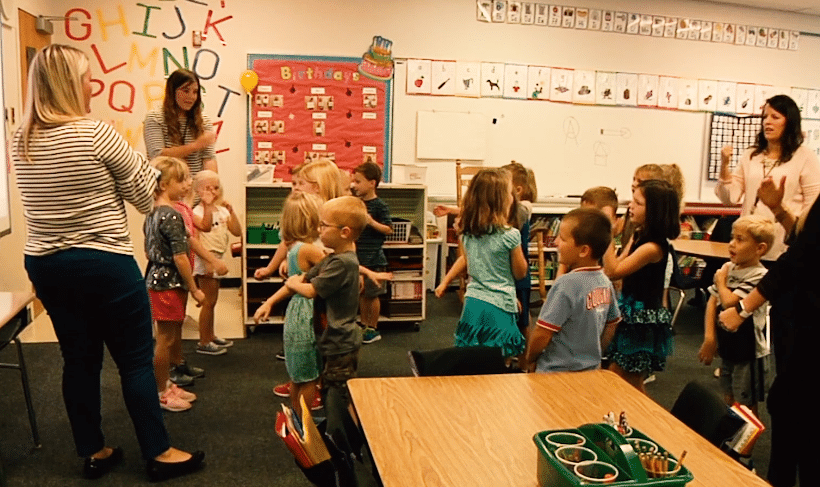
The Early Childhood Inclusive Education Program at Bowling Green State University (BGSU) prepares teachers to educate the youngest of school-age children with a solid foundation for learning. “This program is an example of innovation as it relates to making sure our students at the earliest stage have opportunities to develop and be successful in their lives,” says Rodney Rogers, president of Bowling Green State University. As a public university, BGSU sees itself as serving the public good and views the College of Education & Human Development as a place where all teacher candidates are prepared to meet the needs of their students. Teachers who graduate from the program are ready to enter the classrooms with the skills to accommodate all students.
12 Jun2019
By NCLD
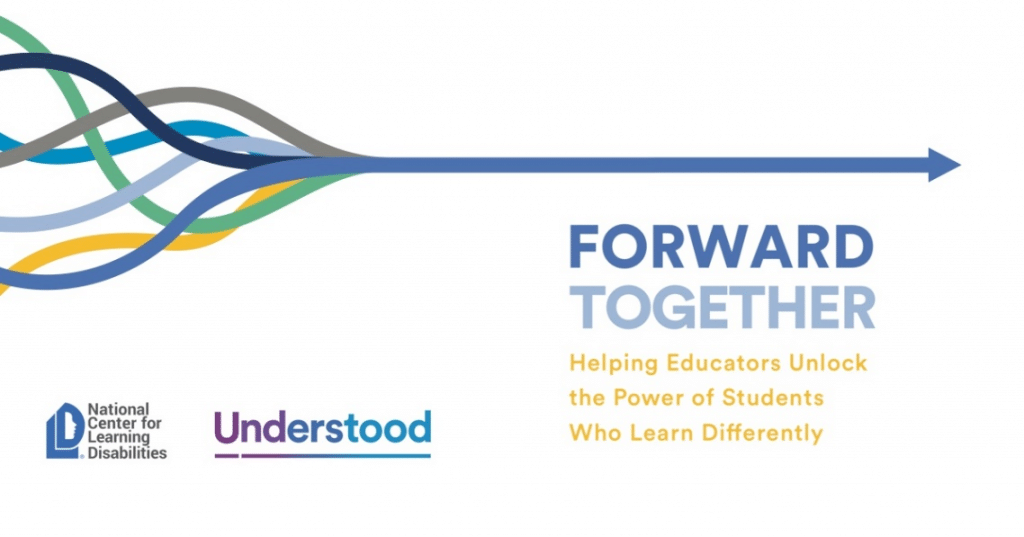
One in 5 students in the United States have learning and attention issues. This includes those with identified specific learning disabilities, diagnosed attention deficit and hyperactivity disorder, or related disorders that impact learning. Despite often having above average or average intelligence, the majority of these students are achieving below grade level. This equates to millions of students across the nation whose strengths and potential are going untapped.
The National Center for Learning Disabilities (NCLD) and Understood set out to unpack and address this problem. We partnered with teachers—often the most consistent touchpoint for students after their caregivers—to understand their experiences and insights. We rooted these experiences in rigorous research focused on general education classrooms, where the majority of the “1 in 5” spend most of their time. The culmination of this work is found in “Forward Together,” a new report from Understood and the NCLD.
AACTE is joining several other education organizations to develop Forward Together Toolkits for our teachers and teacher educators. Stay tuned for more information on the dissemination of those toolkits!
12 Jun2019
By Gretchen Wright
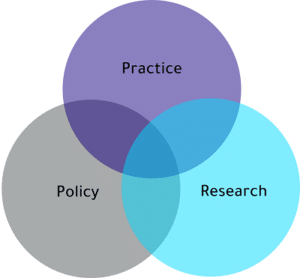 Research shows that teachers are the number one in-school factor affecting student outcomes and principals are the number two factor. One important metric for those outcomes is how well and how equitably our nation’s diverse students are able to navigate our increasingly global and technologically complex world, where skills like critical thinking, collaboration, communication, and being able to apply knowledge in a range of contexts are crucial to success. Today, Learning Policy Institute and Bank Street Graduate School of Education have announced the launch of the Educator Preparation Laboratory (EdPrepLab), a new initiative to help educator preparation programs ensure that new teachers and leaders are able to provide all k-12 students with the kind of deeper learning that helps them develop those skills.
Research shows that teachers are the number one in-school factor affecting student outcomes and principals are the number two factor. One important metric for those outcomes is how well and how equitably our nation’s diverse students are able to navigate our increasingly global and technologically complex world, where skills like critical thinking, collaboration, communication, and being able to apply knowledge in a range of contexts are crucial to success. Today, Learning Policy Institute and Bank Street Graduate School of Education have announced the launch of the Educator Preparation Laboratory (EdPrepLab), a new initiative to help educator preparation programs ensure that new teachers and leaders are able to provide all k-12 students with the kind of deeper learning that helps them develop those skills.
EdPrepLab brings together 15 of the nation’s leading teacher and principal preparation programs to collaborate on further developing and documenting models for preparation that equip educators to advance deeper learning and equity, and that can inform other programs across the nation. The initiative will also support research to improve preparation programs and work with policymakers at federal, state, and local levels to help leverage policies that encourage the use of research-based practices that ensure new teachers and school leaders are well-equipped to provide deeper learning and to build the next generation of equitable schools and instructional education practices.
“Our world has changed significantly since the U.S. education system was first developed, and students today need an education that supports and prepares them for that more diverse, technology-driven, knowledge-based society,” said Learning Policy Institute President Linda Darling-Hammond. “That means we need to prepare teachers and school leaders to provide this kind of education. Fortunately, we have research to guide the way. There is a wealth of new knowledge about the science of learning and development, how social and emotional skills support academic learning, and how to ensure that students really understand what they have learned.”
12 Jun2019
By Prentice T. Chandler and Lisa Barron
 As co-editors, we are inviting you to submit a chapter proposal for the upcoming book, Rethinking School-University Partnerships: A New Way Forward, which will be published by Information Age Publishing. This volume will explore innovative ways in which colleges of education and education preparation providers (EPPs) engage with school partners to improve teacher education and educational outcomes for P-12 learners. The main focus of this book project is to extend the literature in this area and to learn from others around the country engaged in this important work. We are particularly interested in partnership work that addresses mutually beneficial outcomes and persistent issues/problems in teacher education.
As co-editors, we are inviting you to submit a chapter proposal for the upcoming book, Rethinking School-University Partnerships: A New Way Forward, which will be published by Information Age Publishing. This volume will explore innovative ways in which colleges of education and education preparation providers (EPPs) engage with school partners to improve teacher education and educational outcomes for P-12 learners. The main focus of this book project is to extend the literature in this area and to learn from others around the country engaged in this important work. We are particularly interested in partnership work that addresses mutually beneficial outcomes and persistent issues/problems in teacher education.
This book will provide educational leaders in public schools and colleges of education with insight, advice, and direction into the task of creating effective, proactive partnerships. In current times, colleges of education and local school districts need each other like never before. School districts struggle with pipeline-workforce, recruitment, and retention issues. Colleges of education face declining enrollment and a shifting educational landscape that fundamentally changes the way that teachers are trained and what local school districts expect their teachers to be able to do. It is with these overlapping constraints and converging interests that partnerships emerge as a strategy for strengthening the education of our teachers.
The partnerships that we envision are different from the ways in which colleges of education and school districts have traditionally worked with one another. In the past, these loose relationships centered primarily on student teaching and/or field experience placements. We conceptualize “new” partnerships as being proactive, mutually beneficial, pragmatic, and futures oriented. By focusing on people who are leaders in colleges/schools of education and local schools, this book will be well-positioned to help us develop a better understanding of how to initiate and lead change around the concept of partnerships.
10 Jun2019
By Jacqueline Rodriguez

I recently represented AACTE at the Next Educator Workforce: Asking the right questions conference, joining educators from across the country at the Arizona State University (ASU) Mary Lou Fulton Teachers College (MLFTC).
The ASU conference organizers asked the question: Why convene around the idea of the next education Workforce? The response included the following:
- Fewer people are entering the profession.
- More educators are leaving the profession early.
- Educators need more of the sustaining rewards of adult collaboration and efficacy.
Our challenge, according to ASU, is to build broad-based, multilateral partnerships that include colleges of education, schools, districts, and communities committed to designing and fielding new workforce models that make education work better for both educators and learners.

















 Research shows that teachers are the number one in-school factor affecting student outcomes and principals are the number two factor. One important metric for those outcomes is how well and how equitably our nation’s diverse students are able to navigate our increasingly global and technologically complex world, where skills like critical thinking, collaboration, communication, and being able to apply knowledge in a range of contexts are crucial to success. Today, Learning Policy Institute and Bank Street Graduate School of Education have announced the launch of the
Research shows that teachers are the number one in-school factor affecting student outcomes and principals are the number two factor. One important metric for those outcomes is how well and how equitably our nation’s diverse students are able to navigate our increasingly global and technologically complex world, where skills like critical thinking, collaboration, communication, and being able to apply knowledge in a range of contexts are crucial to success. Today, Learning Policy Institute and Bank Street Graduate School of Education have announced the launch of the  As co-editors, we are inviting you to submit a chapter proposal for the upcoming book, Rethinking School-University Partnerships: A New Way Forward, which will be published by Information Age Publishing. This volume will explore innovative ways in which colleges of education and education preparation providers (EPPs) engage with school partners to improve teacher education and educational outcomes for P-12 learners. The main focus of this book project is to extend the literature in this area and to learn from others around the country engaged in this important work. We are particularly interested in partnership work that addresses mutually beneficial outcomes and persistent issues/problems in teacher education.
As co-editors, we are inviting you to submit a chapter proposal for the upcoming book, Rethinking School-University Partnerships: A New Way Forward, which will be published by Information Age Publishing. This volume will explore innovative ways in which colleges of education and education preparation providers (EPPs) engage with school partners to improve teacher education and educational outcomes for P-12 learners. The main focus of this book project is to extend the literature in this area and to learn from others around the country engaged in this important work. We are particularly interested in partnership work that addresses mutually beneficial outcomes and persistent issues/problems in teacher education.